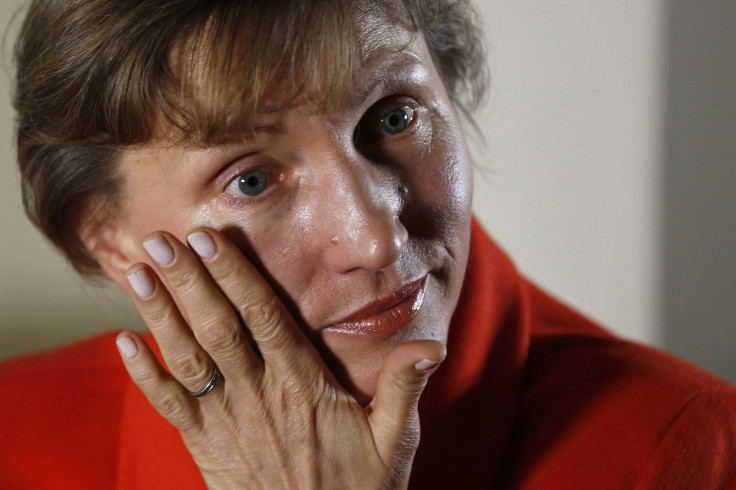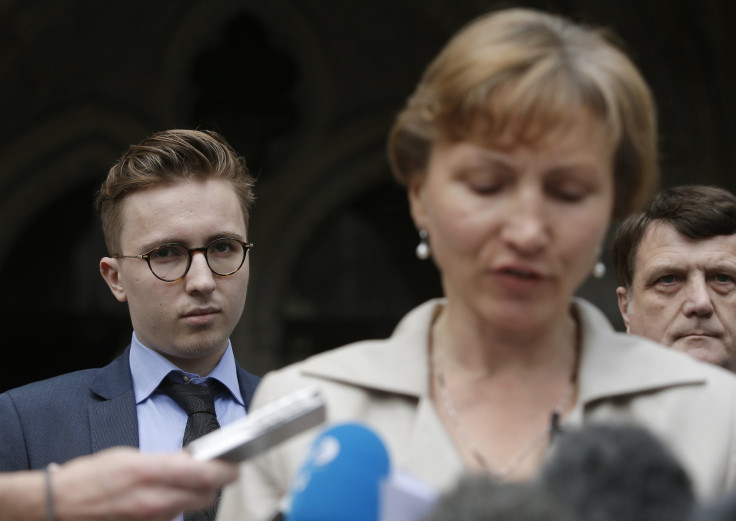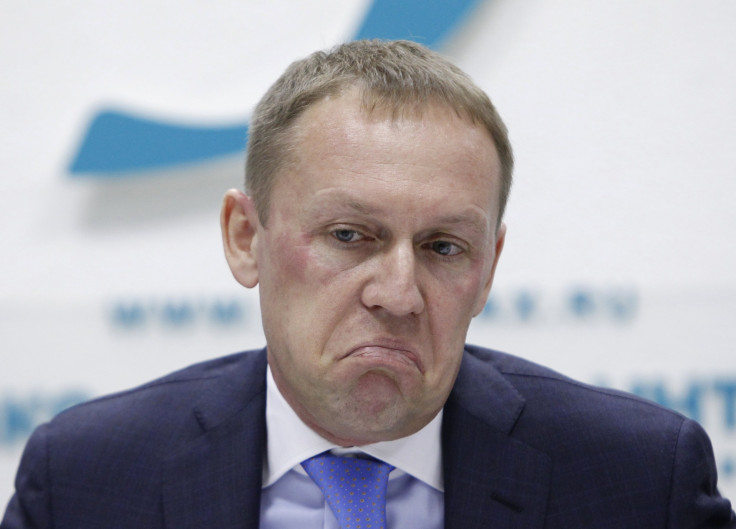Deteriorating Ties Between Britain And Russia As UK Inquiry Finds Putin 'Probably' Approved 2006 Polonium Poisoning of Litvinenko

MOSCOW — Russian President Vladimir Putin “probably” signed off on the 2006 London assassination of ex-KGB agent Alexander Litvinenko, a British judge said Thursday. The long-expected announcement is likely to further strain relations between Russia and the United Kingdom.
Russian Ambassador to the U.K. Alexander Yakovenko dismissed the inquiry as a “whitewash,” adding, “This gross provocation of the British authorities cannot help hurting our bilateral relations.” Likewise, Maria Zakharova, spokeswoman for the Russian foreign ministry, expressed her concern the 329-page report from inquiry chairman Sir Robert Owen was "politicized."
The findings come after a long campaign by Litvinenko’s widow, Marina Litvinenko, who successfully challenged a decision by U.K. Home Secretary Theresa May not to launch an official investigation of the death. The public inquiry was set-up in July 2014 amid the conflict in Ukraine and the worst standoff between Russia and the West since the Cold War.

The inquiry's report stated: “The FSB operation to kill Mr. Litvinenko was probably approved by Mr. Patrushev and also by President Putin.” Nikolai Patrushev was the head of the FSB, Russia’s feared security services, at the time of Litvinenko’s death, which occurred after he drank a cup of green tea laced with radioactive polonium-210.
Speaking outside the U.K.’s high court, Marina Litvinenko told reporters she was “very pleased that the words my husband spoke on his deathbed when he accused Mr. Putin have been proved by an English court." She also called for all Russian spies to be thrown out of the U.K. and for sanctions to be put on Putin and other Moscow officials.
May told the British Parliament Litvinenko’s assassination amounted to a “blatant and unacceptable” breach of international law and announced asset freezes would be imposed on the two chief suspects. The U.K. government said the Russian ambassador would be summoned over the findings.
British police have issued arrest warrants for ex-KGB agents Andrei Lugovoi and Dmitry Kovtun, who met Litvinenko on the day of his poisoning, and Owen placed the responsibility for the crime firmly on their shoulders. Both Russians deny the charges.
“I am sure that Mr. Lugovoi and Mr. Kovtun placed the polonium-210 in the teapot at the Pine Bar on 1 November 2006. ... I am sure that they did this with the intention of poisoning Mr. Litvinenko,” Owen wrote. Moscow has refused requests from the U.K. to extradite Lugovoi and Kovtun and neither man cooperated with the inquiry.
Lugovoi , a nationalist lawmaker in the Russian Parliament, called the accusations “absurd. As we expected, there was no sensation! The announcement of the results of the investigation today have yet again confirmed London’s anti-Russian stance and its narrow-mindedness and lack of desire to discover the truth about the death of Litvinenko,” the Interfax news agency reported.

Kovtun, who has spoken relatively infrequently to the press, did not issue any public response to the report.
The U.K. inquiry talked to dozens of witnesses in more than a year of interviews and also had access to classified materials from the U.K. intelligence services. Its final report contains a detailed reconstruction of the movements of Kovtun and Lugovoi, who apparently succeeded in poisoning Litvinenko on their second attempt at the beginning of November 2006. A trail of radioactive material is tracked from the airplanes on which Kovtun and Lugovoi flew into London, to boardrooms where they met business associates in London and to the white porcelain teapot from which Litvinenko poured his tea at the fatal meeting among the three men. Litvinenko died three weeks later in a London hospital. He was 43.
Litvinenko fled to London in 2000 and became a fierce critic of Putin — including airing accusations the Russian leader is a pedophile — and reportedly cooperated with European spy agencies, including U.K. intelligence services. He was a close associate of other prominent Putin critics, including Russian oligarch and one-time Kremlin kingmaker Boris Berezovsky who was found dead in his home Ascot in Berkshire in southeast England in 2013.
While Owen admitted there was no direct proof Lugovoi and Kovtun were acting under orders of the FSB, and possibly Putin, he said there was significant evidence to suggest such a scenario was close to the truth.
“Since 2006 President Putin has supported and protected Mr. Lugovoi, not withstanding the fact that Mr Lugovoi has been publicly accused of killing Mr. Litvinenko. During the course of the Inquiry hearings, President Putin awarded Mr. Lugovoi an honor for services to the fatherland. While it does not follow that Mr. Lugovoi must have been acting on behalf of the Russian State when he killed Mr. Litvinenko, the way in which President Putin has treated Mr. Lugovoi is certainly consistent with that hypothesis. Moreover, President Putin’s conduct towards Mr. Lugovoi suggests a level of approval for the killing of Mr. Litvinenko,” Owen said.
The verdict of the London inquiry was sparsely reported on tightly state-controlled television in Russia and the Russian Foreign Ministry issued a statement dismissing the findings. The inquiry was “politically motivated and extremely lacking in transparency,” the Foreign Ministry said.
© Copyright IBTimes 2025. All rights reserved.






















